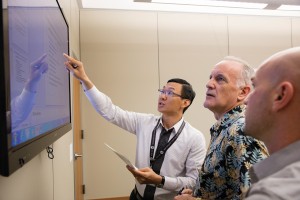
Vietnam Fellow Tran Phuoc Anh discusses formation of a strategic vision for his nation with APCSS professor U.S. Navy Capt. Benjamin Clancy and intern Cody Fultz.
Continuing a steady trend of increasing U.S.-Vietnam cooperation, Ho Chi Minh National Academy of Politics and Asia-Pacific Center for Security Studies teamed up for a joint workshop promoting international partnership building. The March 16-20 event marked the 20th anniversary of the restoration of formal U.S.-Vietnam ties.
Titled “Vietnam and Regional Cooperation in the Asia-Pacific” the workshop paired 30 of Vietnam’s current and future leaders with APCSS faculty for lectures, discussions and strategy development. The intent, said APCSS course manager Dr. Alexander Vuving, was to enhance the group’s understanding of evolving international dynamics as their nation emerges onto the world stage.
“Vietnam’s integration is taking place at a time when the world and the Asia-Pacific are undergoing profound changes,” explained Vuving. “Understanding the interconnected region and learning how to cooperate with global and regional actors has become a key imperative for Vietnam’s leaders.”
The Communist Party of Vietnam determined in 2011 to accelerate its nation’s global integration. This includes joining the United States in a comprehensive partnership formed in 2013 and framed in efforts to improve cooperation in, among other things, trade, education, defense and security.
According to Vuving, the March course represented a “ground-breaking” engagement jointly sponsored by the CPV and U.S. government.
The event addressed five critical areas:
- Demographic, development and geopolitical trends driving regional dynamics
- Critical issues for cooperation (to include climate change and the water-food-energy nexus)
- Architecture and mechanisms of international cooperation (particularly within the Association of Southeast Nations).
- Roles and perspectives of key actors in the region
- Vietnam’s role in the Pacific
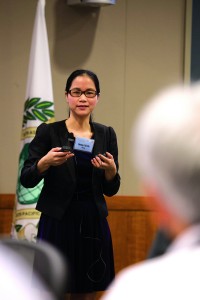
Hoang Thi Ha, assistant director, political cooperation, ASEAN Secretariat, presents the lecture “ASEAN and Vietnam in a Changing Region.”
Following daily plenary lectures, participants used working group sessions to analyze and respond to “framing questions,” enabling the group to internalize and eventually apply lessons learned. The week culminated in construction of a potential strategic vision for their nation by addressing three core questions: “Where is Vietnam’s place in the region and world today?;” What are the central objectives of Vietnam’s integration with the region?;” and “What are the options that Vietnam can pursue in order to meet these objectives amidst the changing situation in the region?” Woven into their proposed vision were elements of good governance, environmental sustainability and development of human capital.
One of three group leaders, Nguyen Si Dung, praised the workshop process that led to a strategic “take-home” product. “The workshop was useful because it touched the real and important challenges the Vietnamese people are trying to address. And, it was participant-centered, so we were very active in working out our own answers; the organizers simply created favorable conditions for us.”
Vietnam’s regional emergence runs concurrently with the U.S. rebalance to the Asia-Pacific. David Shear, assistant secretary of defense for Asian and Pacific security affairs, discussed America’s regional emphasis with workshop participants during a March 20 video teleconference. The VTC enabled the Vietnamese group and the secretary to exchange perceptions related to the region as a whole and Vietnam specifically. It also allowed Shear, a former U.S. ambassador to Vietnam, to re-connect with former professional acquaintances.
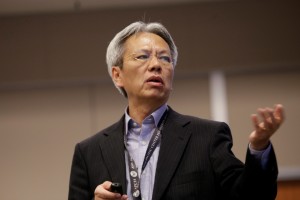
Nguyen Si Dung, vice chair of the Vietnam National Assembly, served as one of three group leaders and, here, articulates his team’s perspective on Vietnam’s future.
The exchange was well received, reflecting the positive trend in the two nations’ ties. Si Dung related, “I think the U.S.-Vietnam relationship is very good and becoming better and better every day.”
The U.S. and Vietnam assumed normalized relations in 1995, two decades after the closure of the U.S. embassy in Saigon in 1975.
APCSS is one of Department of Defense’s five regional security studies centers. Military and civilian representatives, most from the United States and Asia-Pacific nations, participate in a comprehensive program of executive education, professional exchanges and outreach events in Hawaii and throughout the Asia-Pacific region. Since the Center’s 1995 opening, more than 9,000 alumni representing over 122 countries and territories have attended APCSS courses and workshops.
-END-



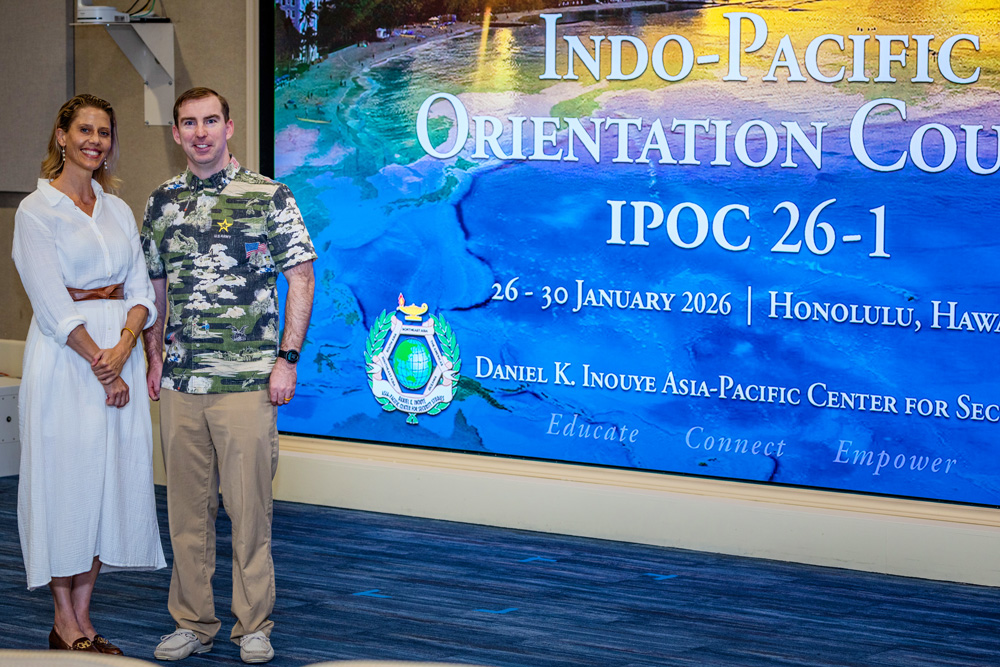
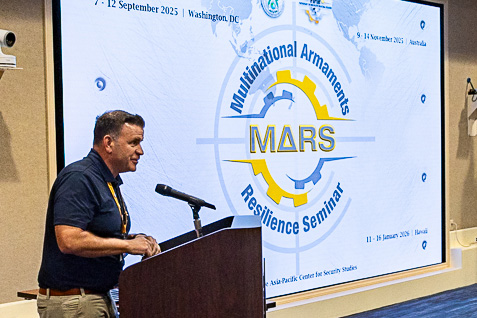
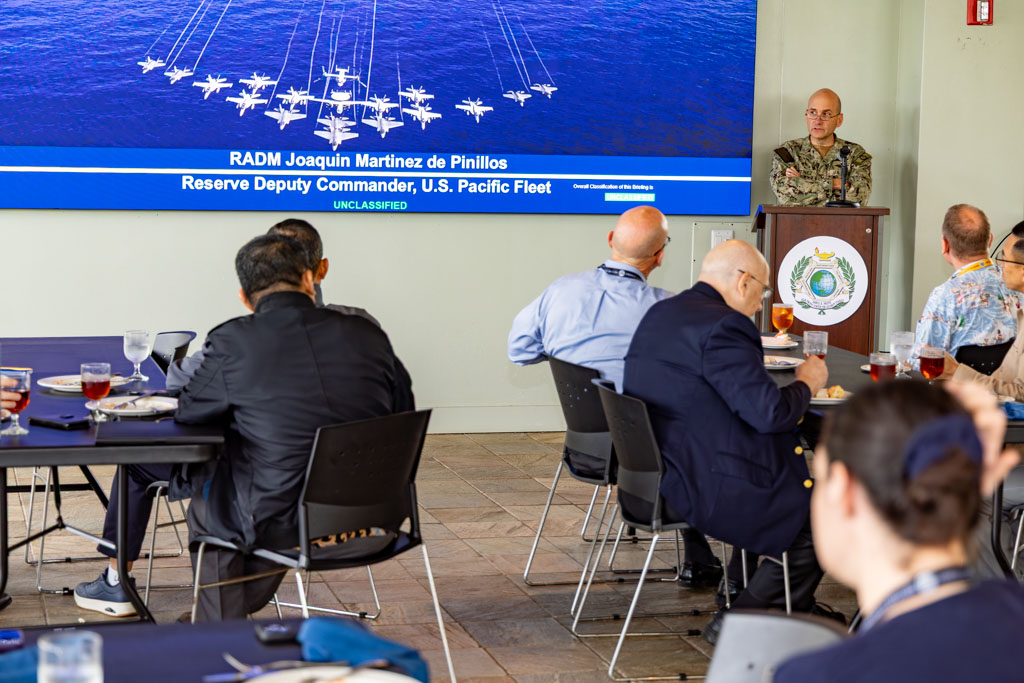




Leave A Comment